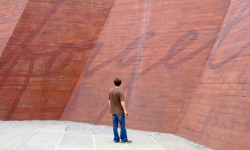
Curious, by Jo Hood, is a monthly column. Jo is the Visionary/CEO of mainly Ministries. Most of the time, she loves walking into a room where she knows no one - curious to learn about others. But she finds there is a certain kind of buzz to recognise another and be recognised. She loves providing hospitality and honouring her late husband’s legendary cooking (hers isn’t that legendary though!)
I’m curious. Have you ever walked into a room, scanned it quickly, and realised you know…no one?
For the evangelist, this is pure gold. So many people to talk to and find out where their faith is at. For the gregarious, who loves an audience or to be the life of the party, what a dream!
For most, that sense of feeling lost and unknown can be daunting. This requires additional emotional energy and sometimes takes the shine off the experience.
When whānau/families are new to a location, they can often experience this ‘I know no one’ feeling everywhere they go. When mātua/parents are new to parenting, this can be a regular experience. How can we reduce the energy required to assimilate into this new space?
A mainly Ministries partner has a team member who is the welcomer. This person is alerted and takes the newcomer to meet others after registration. On the way, they explain what will happen during the morning, where the bathrooms are located, and they get to know whānau/family members. By introducing matua/the parent to others, the newcomer ‘lands’ or at least can start to relax. Then during kai/food time, the welcomer also checks in again. During the week, whānau/family is sent a TXT or email, reinforcing they are welcome and how the team are looking forward to their return.
As the weeks pass, newcomers assimilate into the group through introductions to others with similar interests or tamariki/children of the same age. The group they’ve just joined becomes a friendly and engaging place with all of the team making it a priority to talk to whānau/families, regardless of whether they’re new or almost part of the furniture.
What else helps whānau/families to be needed and known?
Knowing the names of the adults and tamariki/children is significant. As we aren’t all blessed with memories that link name and face, nametags can assist. Being satisfied to know a handful of people well is a great goal.
Noticing detail when whānau/families arrive or while chatting becomes a way to make them feel known. While we know that loving on their tamaiti/child extends to loving on their matua/parent, it’s also important to acknowledge the adult in some way so they don’t feel like an ‘extra’.
When someone offers to bake (“I’d love to bring a plate of brownies next week”), say YES! This indicates they’ve reached a place of belonging.
During the week
Hospitality in your whare/home is like the gold star level of people feeling known. Inviting people home for kai/food, like soup and bread or toasted sandwiches, is all that’s required. It’s the sharing of time, the engagement around the table, and the rich conversation that follows; that’s what people enjoy. Your whare/home doesn’t have to appear as a designer version, ready for sale – its warmth will be in the invitation.
Photo: supplied by mainly Ministries, from iStock


